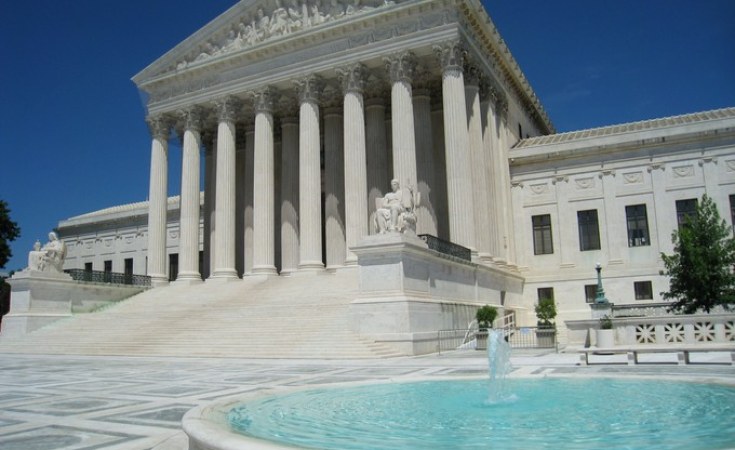Nearly ten years after Khulumani first lodged its lawsuit against alleged apartheid-era corporate collaborators with the security forces of the apartheid regime, a US court has ratified a settlement between the claimants and a 'broke' General Motors Corporation.
In a remarkable development, General Motors decided to embark on settlement negotiations with the lawyers for the plaintiffs in the South Africa Apartheid Litigation, when the bankruptcy court had in fact decided that apartheid claimants in fact, had no claim. It is the outcome of this negotiation that was yesterday finalized by the court.
Khulumani welcomes this development and the possibility that it opens for the establishment of a Reparations and Rehabilitation Trust to begin the work of facilitating processes for the restitution of the damage sustained by individuals and communities through their activism against apartheid oppression.
The settlement comes on the day that the US Supreme Court is hearing oral arguments on another Alien Tort Statute (ATS) case, Kiobel v Royal Dutch Petroleum Co. The outcome of this appeal will have a direct impact on the apartheid litigation still pending before the 2nd Circuit Court of Appeal.
In the intervening years since the Khulumani case was lodged in November 2002,
- one of the judges has passed away (Justice John Sprizzo);
- the validity of the United States Alien Tort Claims Act (often referred to as the Alien Tort Statute) of 1789 has been challenged;
- the Khulumani lawsuit became "amalgamated" with the Ntsebeza lawsuit to become the South Africa Apartheid Litigation;
- the South African government under President Mbeki and then Minister of Justice Penuell Maduna, in 2003 distanced itself from the litigation on the grounds of sovereignty issues and requested the District Court to dismiss the apartheid claims, but then made an about- turn under President Zuma, when the current Minister of Justice Jeff Radebe wrote to the court in September 2009 to confirm that it now viewed the District Court as the most appropriate forum to hear the case going forward, given the serious nature of the violations of international customary law that it addresses; and
- many Khulumani' claimants or their relatives, including Professor Dennis Brutus, have passed away.
The claimants are represented by two US law firms: Hausfeld LLP and Nagel Rice LLP assisted by their South African counterparts, Abrahams Kiewitz Attorneys and Ngcebetsha Madlanga Inc.
The original Khulumani Lawsuit included nearly 100 named plaintiffs and charged 23 companies for aiding and abetting the apartheid regime in perpetrating gross human rights violations. This approach was adjusted into a proposed class action with 13 plaintiffs - but the classes were not granted "certification" by the court.
The Scheindlin judgment of April 2008 left only 5 companies in the Khulumani case: General Motors, Ford Motor Company, IBM, Daimler AG and Rheinmetall. The claims against the oil companies and the banks were disallowed because these multinationals had conducted normal business relations with the country beyond their contracts with various apartheid security agencies.
The original damages suffered and claimed for were human rights violations including assassination and murder, indiscriminate shooting, prolonged detention without trial, torture and rape (in detention). An additional damage of "denationalisation" (deprivation of citizenship) was later included.
A court order dated 24th February 2012 and endorsed on 27th February 2012 has made the settlement between "Motors Liquidation Company (formerly known as General Motors Corporation) GUC Trust (General Unsecured Creditors) and the "debtors" (the apartheid lawsuit claimants), final. The order does not require an admission of liability by General Motors. The details of the settlement are still to be determined.
Khulumani continues its efforts to ensure that accountability for complicity in the perpetration of apartheid-era gross human rights violations is secured and that a comprehensive and inclusive reparations policy is finally constructed. The decision of General Motors to make a contribution towards redressing the harms caused through corporate complicity with apartheid security agencies, is one that Khulumani accepts with gratitude. Khulumani calls on the companies remaining in the litigation: Ford Motor Company, IBM, Daimler and Rheinmetall to similarly come to the table to negotiate with the lawyers towards reaching a settlement.
At this time, Khulumani calls on the South African government to become an equal and respectful partner in the "unfinished business" of restoring the lives and the losses of victims of apartheid-era crimes through engaging with the many proposals for a satisfactory resolution of these matters that it has tabled with the TRC Unit in the Department of Justice so that the just and inclusive society for which so many made sacrifices, may finally be realized.


